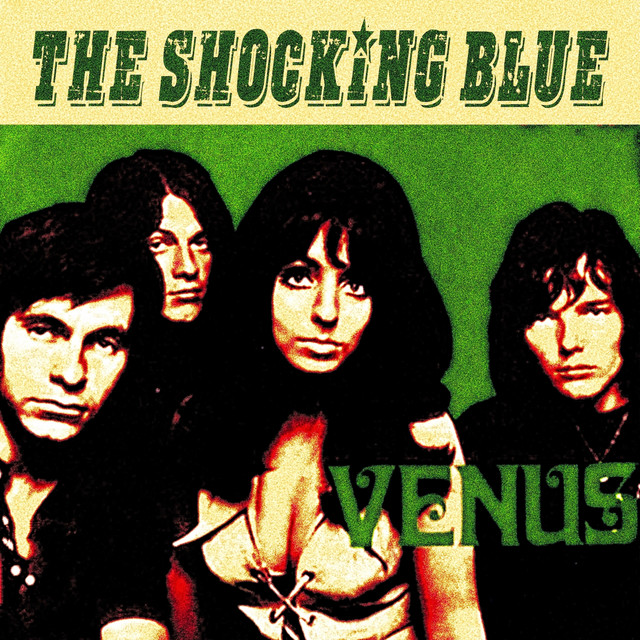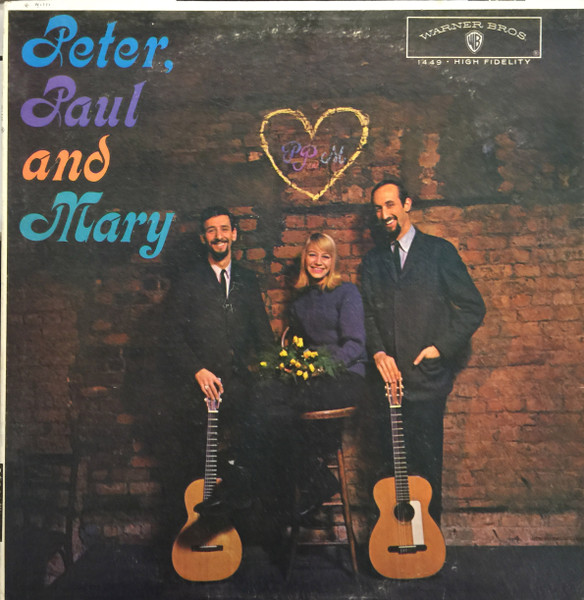 “Reach Out (I’ll Be There)” by The Four Tops isn’t just one of the most recognizable hits of the Motown era—it’s a spiritual jolt, a sonic embrace, a desperate cry of love rendered so powerfully that it transcends the era of its release. When it dropped in 1966, the song wasn’t just another track in the crowded airwaves of AM radio; it was a national moment, a collective exhale, a rallying cry of emotional urgency. The Four Tops, led by the magnetic Levi Stubbs, had already found their groove with previous hits like “Baby I Need Your Loving” and “I Can’t Help Myself (Sugar Pie Honey Bunch),” but with “Reach Out (I’ll Be There),” they didn’t just make a hit—they created an anthem.
“Reach Out (I’ll Be There)” by The Four Tops isn’t just one of the most recognizable hits of the Motown era—it’s a spiritual jolt, a sonic embrace, a desperate cry of love rendered so powerfully that it transcends the era of its release. When it dropped in 1966, the song wasn’t just another track in the crowded airwaves of AM radio; it was a national moment, a collective exhale, a rallying cry of emotional urgency. The Four Tops, led by the magnetic Levi Stubbs, had already found their groove with previous hits like “Baby I Need Your Loving” and “I Can’t Help Myself (Sugar Pie Honey Bunch),” but with “Reach Out (I’ll Be There),” they didn’t just make a hit—they created an anthem.
Everything about the song is urgent, from the way the drums march in like a war call to the dramatic stabs of the flute and strings that follow. Then Levi Stubbs, with that desperate and throaty baritone, comes in not as a lover asking politely, but as a man consumed by emotion, ready to chase down a brokenhearted woman and keep her from falling into despair. “Now if you feel that you can’t go on / Because all of your hope is gone…” It’s not a whisper—it’s a wail, and it begins one of the most emotionally charged vocal performances in pop music history.
What makes the song so distinctive, apart from Stubbs’ transcendent delivery, is how much of it breaks from Motown’s usual formula. Written by the powerhouse team of Holland–Dozier–Holland, the architects behind most of Motown’s biggest hits, “Reach Out (I’ll Be There)” is a daring, cinematic piece of music. Brian Holland and Lamont Dozier took inspiration from Bob Dylan, who was redefining what vocal vulnerability could mean in pop. They wanted Stubbs to sound like a preacher, like a man whose love wasn’t just romantic—it was spiritual, salvation itself. And that’s exactly what he delivered.
The backing track is equally dramatic. That opening, driven by Earl Van Dyke’s keyboard and James Jamerson’s iconic bassline, is matched with galloping drums and a rolling, restless energy that never lets up. The sound is stormy, chaotic even, with the Andantes (Motown’s go-to female backing vocalists) layering in harmonies that almost sound like they’re echoing from a cathedral. It’s not a smooth groove like many of the other Motown hits—it’s choppy, jarring, almost startling in how it builds its urgency. That’s exactly what made it stand out.
Stubbs doesn’t plead—he demands. And there’s something about that dynamic, about a male singer offering comfort not with tenderness, but with intensity, that turned heads. He isn’t just saying, “I’ll be there.” He’s shouting it from the mountaintops. There’s a protective, almost paternal undertone to the lyrics—“I’ll be there with a love that will shelter you.” It’s not just romantic; it’s sacrificial. That kind of promise, delivered with that kind of force, doesn’t sound like flirtation—it sounds like destiny. The soul is bared completely.
And yet, for all the fire and urgency, there’s a structure here that’s tightly wound and impeccably arranged. Motown’s house band, the Funk Brothers, were operating at their peak. Every note, from the bass climb to the chime of the tambourine, serves the narrative. When the chorus explodes—“Just look over your shoulder!”—it feels less like a musical moment and more like a lifeline. It’s the sound of someone showing up at your lowest point with open arms and unshakable devotion.
The commercial impact was immediate. The song shot to No. 1 on the Billboard Hot 100 and remained there for two weeks, becoming one of the most successful Motown singles of all time. It also became a transatlantic sensation, topping the UK Singles Chart and giving the Four Tops global acclaim. But more than its chart performance, “Reach Out (I’ll Be There)” became a cultural touchstone. It was played at protests, funerals, weddings—it became that kind of song, the kind that people turned to in moments of vulnerability, pain, or joy.
It’s also one of those rare Motown tracks that managed to bridge the gap between gospel and pop in a way that didn’t dilute either. Levi Stubbs had grown up singing gospel, and you can hear every bit of that in his delivery here. He doesn’t croon; he testifies. And the lyrical message—about being there for someone in their darkest hour—is universal. You don’t need to be in love to relate to it. You just need to have suffered.
There’s something almost biblical about the promise the song makes. “I’ll be there with a love that will see you through.” That’s not just romanticism—that’s devotion, the kind found in scripture or great epics. Holland–Dozier–Holland didn’t write love songs so much as they wrote emotional blueprints. And with “Reach Out,” they constructed a cathedral out of soul, gospel, and pop. It’s easy to forget that this was written and recorded in the space of a few days—it sounds like something that should’ve taken years to get right.
The legacy of the song is deep and multi-generational. It’s been covered by everyone from Diana Ross to Gloria Gaynor to Michael McDonald, and sampled in numerous hip-hop and R&B tracks. Yet no one has ever come close to matching the sheer power of the original. It remains one of the cornerstones of soul music—a track that’s taught in music theory classes for its production, studied in vocal workshops for its performance, and played endlessly on oldies stations because it still resonates.
The Four Tops themselves were forever defined by it. While they had many hits—“Bernadette,” “Standing in the Shadows of Love,” “It’s the Same Old Song”—none matched the towering presence of “Reach Out.” It became their calling card, the song most associated with Levi Stubbs’ vocal power. The group, known for their polished choreography and regal suits, brought a kind of gravitas to Motown that complemented the sass of The Supremes and the smoothness of The Temptations. And “Reach Out” was their crowning achievement.
Levi Stubbs, in particular, should be remembered as one of the greatest vocalists in American music history. Unlike Smokey Robinson or Marvin Gaye, who often trafficked in silky falsetto, Stubbs went for broke every time. He sang with his soul wide open. On “Reach Out,” he sounds like a man possessed—by grief, by love, by the need to protect. And in that desperation, we hear our own. That’s the magic. He’s not just singing to a girl. He’s singing to all of us.
There’s also a social context to consider. This was 1966, and the world was in turmoil. The civil rights movement was in full swing, and Motown was the soundtrack of Black pride and resilience. “Reach Out” isn’t a protest song, but in many ways, it was a balm—a reminder that love and support were still possible in a divided world. The promise to “be there” wasn’t just personal—it was political. It was communal. It was human.
Perhaps the greatest testament to the song’s endurance is how it continues to resonate with new generations. It shows up in commercials, in movies, in TV shows—and each time, it somehow feels just as urgent as it did in 1966. That’s no accident. That’s the mark of timeless music. The combination of gospel fervor, poetic lyrics, orchestral sweep, and gut-punch vocals makes “Reach Out (I’ll Be There)” one of those songs that doesn’t belong to any one era. It belongs to everyone.
For Motown, the song was a turning point. It proved that the label could make more than dance hits—it could make grand statements. It pushed the boundaries of what pop could be, showing that emotional depth and commercial appeal weren’t mutually exclusive. For The Four Tops, it was the moment they were immortalized. And for listeners, then and now, it was a song that felt like a friend—reliable, constant, always there when you needed it.
“Reach Out (I’ll Be There)” isn’t just one of the best songs of the Motown era—it’s one of the most emotionally profound recordings in popular music history. It’s thunder and lightning in three minutes. It’s a love song turned into gospel revival. It’s a reminder, in its most elemental form, that we’re never really alone if someone—anyone—is willing to show up and say, with conviction, “I’ll be there.”
And when Levi Stubbs says it, you believe him.


